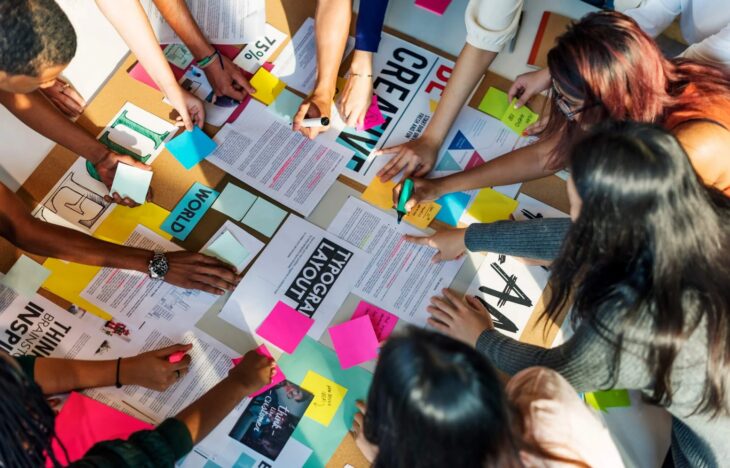In the past, our educational system was focused primarily on the ability to retain and repeat information learned from books, while problem-solving skills were limited to mathematics and the science labs.
But time has changed our definition of learning, and nowadays, we prioritize helping students develop essential thinking skills that will prepare them for what it takes to navigate the real world after they graduate.
The current economy is driven by technology and information. In a fast-changing job market, you need to be able to analyze information from different sources and use it to solve problems.
Critical thinking involves analyzing the way you think, understanding the logical connections between different ideas, analyzing problems systematically and presenting evidence for your opinions, instead of relying solely on instinct and accepting information presented to you at face value.
Here are four benefits of teaching students how to think critically.

Source: Project Pals
Contents
1. Encourages Curiosity
Curiosity is what drives us to better understand the world around us, our role in it and how to improve our experience in this world. It helps us go beyond what is taught in school.
Teaching students critical thinking skills means that once they graduate, they will remain curious about a variety of subjects because they have retained that inquisitiveness and willingness to understand the world, society as a whole, different cultures and belief systems.
2. Enhances Creativity
Critical thinkers are creative thinkers, and creativity is an important skill in the modern workforce.
In order to figure out innovative solutions to a problem, it’s not enough to have fresh ideas. These ideas also have to be relevant to the task and useful. Critical thinking skills will enable students to evaluate their ideas, select the best ones and make adjustments if necessary.

Source: Superprof
3. Strengthens Problem-Solving Skills
The better you are at critical thinking, the better you are at solving problems. If we consider that the children we educate today are the leaders of tomorrow, it’s pretty easy to see why we have to teach them the skills necessary to face complex challenges.
Critical thinking is vital to solving problems because it helps kids develop the kind of patience, commitment and persistence required to go beyond your impulses and look at the problem from multiple points of view.
4. Improves Academic Performance
Teaching critical thinking for students can also improve their academic performance. Here at ACC Instead of relying on their teachers for instructions or guidance, critical thinking skills will allow them to become independent, self-directed learners who can evaluate their own learning styles and take ownership of their education.
Moreover, they’ll be able to make connections between concepts from different disciplines and see that knowledge is useful not just for getting good grades. They’ll understand it on a deeper level and see how it applies to their daily lives.
When they go to university, they will often be asked to write papers on their subject matter which means they need to have already developed the capacity to think independently and give their thoughts a logical structure. Their academic performance and future career will depend more on being able to reason and present their ideas in a persuasive manner, and less on their ability to retain and repeat information from books.

Source: Administrate!
5. Fosters Independence
One of the main goals of education is to teach students to think for themselves and learn by themselves to the point where they become their own educators. This process is repeated with each generation of students. Independent thinking allows present and future generations to make sense of the world around them based on their observations.
Through critical thinking, they develop enough self-awareness to know the difference between well-informed decisions and emotional reactions stemming from personal biases. By understanding how emotions can interfere with the ability to think rationally, they can also better understand the perspectives of others which will help them improve their ability to work in a team setting.
At the same time, students who were given plenty of opportunities to develop their critical thinking skills are less likely to give in to peer pressure which will keep them out of dangerous situations. As adults, a healthy dose of scepticism will prevent them from falling for scams because they will know to question and investigate information presented to them, rather than simply assuming that everything they’re told is true, regardless of the source.
6. Improves Communication Skills
Critical thinking helps you see yourself and those around you in a more objective way. It changes the way you approach social situations. Since communication is vital to any relationship, a more self-aware and objective approach will help students remain level-headed and keep arguments from escalating.
This will help them get along better with their families and colleagues at school. Later on, it will help them get along with their co-workers and romantic partners. They’ll be able to analyze someone else’s point of view without giving in to immediate emotional reactions so they’ll be better able to express their views, needs and wants.
Although we’d like to protect them from all negative aspects of life so they can enjoy their childhoods care-free, they will inevitably be in situations in which they might be treated unfairly. Critical thinking skills will help them realize when and why this is happening. They’ll also be able to figure out what they need to do and who they need to speak to in order to turn an unsatisfactory situation to their advantage.

Source: Insight
7. It’s an Essential Life Skill
From everything we have enumerated above, you can see that the benefits of teaching students how to think critically are not limited to the academic setting. Of course, it can help them improve their grades and get into better universities which, in turn, can lead to better career prospects, but critical thinking remains an important life skill.
A successful career and a successful life require critical thinking skills because it’s our decisions that shape our future both individually and as a whole. Once students graduate, they will need these skills to decide how to choose the right career path, how to negotiate a raise, how to organize their finances, how to buy a house and so on. Not only that, being able to think critically can even help them decide when and with whom they want to start a family. Most importantly, they will also be able to pass this knowledge to their own kids.
